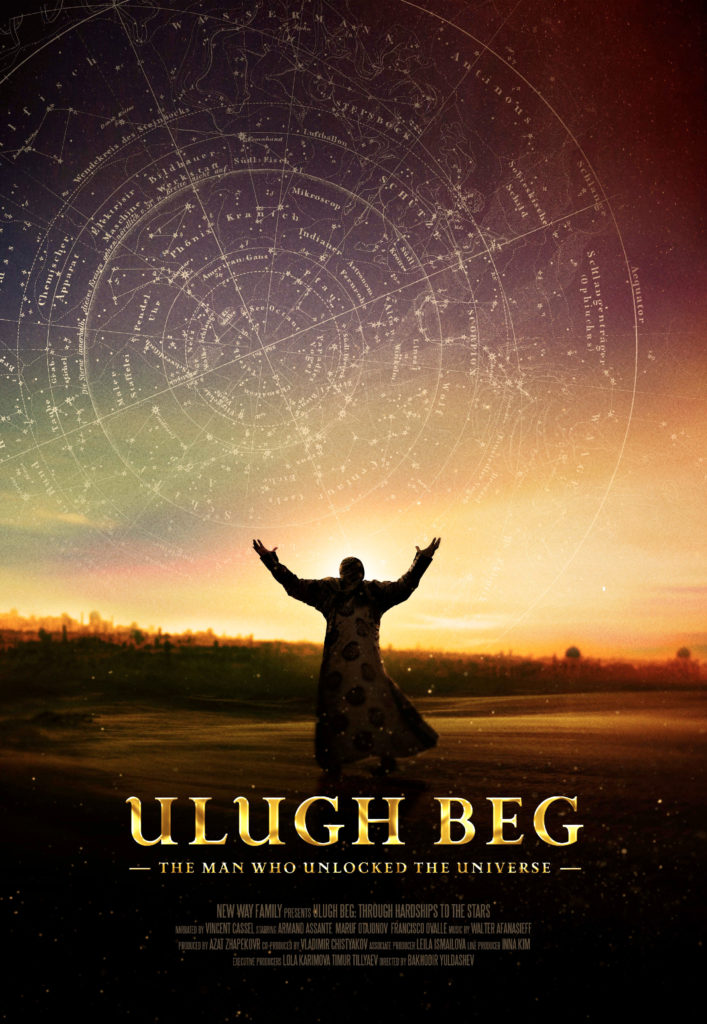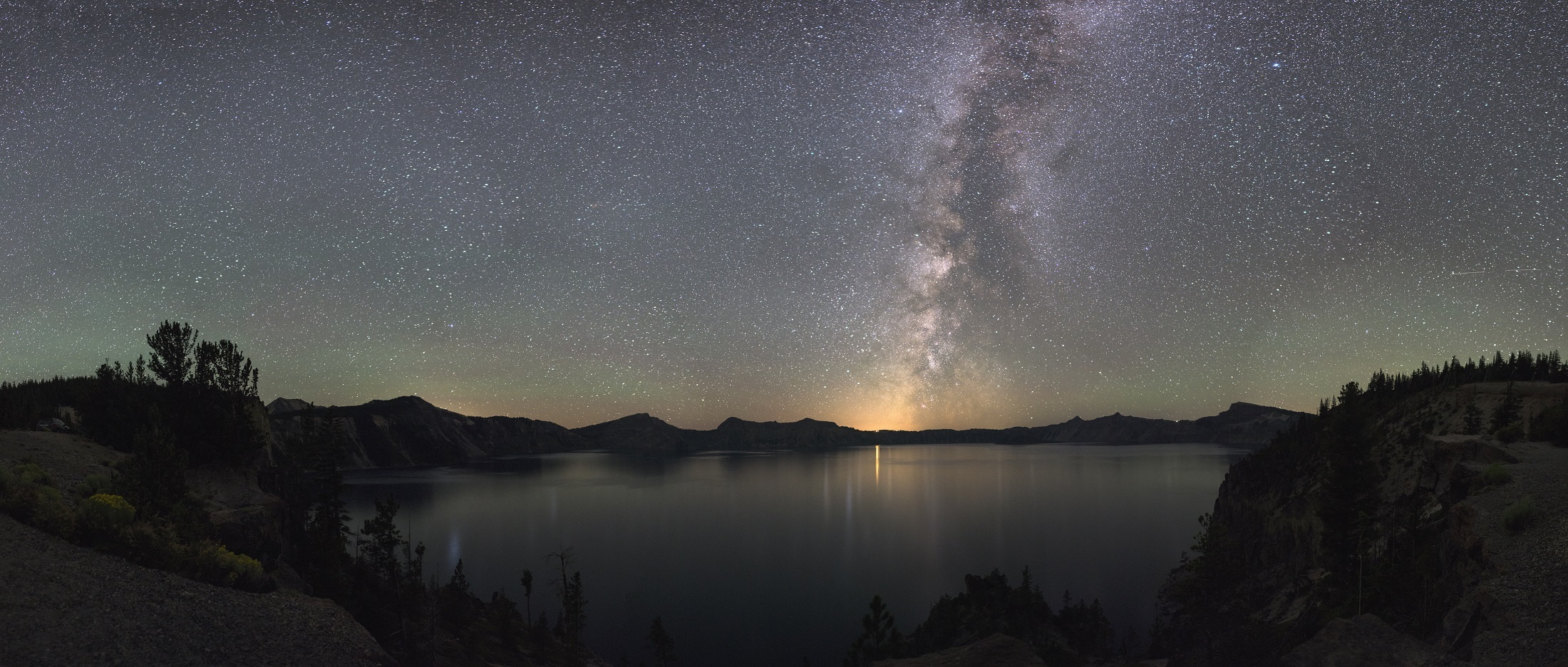 The astonishing
legacy of a long-forgotten Uzbek ruler, scholar, and scientist is finally
being shared with a modern, global audience thanks to a new biographical
feature film from executive producers Lola Karimova-Tillyaeva and Timur
Tillyaev.
The astonishing
legacy of a long-forgotten Uzbek ruler, scholar, and scientist is finally
being shared with a modern, global audience thanks to a new biographical
feature film from executive producers Lola Karimova-Tillyaeva and Timur
Tillyaev.
Ulugh Beg: The Man Who Unlocked the Universe tells the incredible story of Mirza Muhammad Taraghay bin Shahrukh, better known by his more commonly used name of “Ulugh Beg,” which means “great ruler.” Born in 1394 in Persia (present-day Iran) and the eventual ruler of a territory including present-day Uzbekistan, Ulugh Beg rose to become one of the greatest scientific thinkers of the Eastern Renaissance, with a record of achievements that far exceeded the world he lived in. With this new film, the producers hope to pay tribute to Ulugh Beg’s remarkable legacy and to introduce a new generation of global viewers not only to his story, but also to the rich historic and cultural heritage of Uzbekistan.
Ulugh Beg: The Man Who Unlocked the Universe was awarded the Kineo Prize for Best Foreign Documentary at the 74th Venice International Film Festival, and is scheduled for future screenings at a number of other festivals. To whet your appetite for the film, read on for some fascinating facts about Ulugh Beg.
He was the grandson of a legendary conqueror.
Ulugh Beg’s grandfather was the famous Turco-Mongol conqueror Timur, also known as Tamerlane. Timur was born in 1336 in Transoxiana (an area that includes present-day Uzbekistan), and was leading military campaigns across Western, South, and Central Asia by 1370. Due to the success of these campaigns—in which he defeated many opponents, including the Ottoman Empire, the Mamluks of Egypt and Syria, and the Delhi Sultanate—Timur emerged as the Muslim world’s most powerful ruler of the age. However, the empire that he founded, the Timurid Empire, did not long survive after his death in 1405. Timur is best-known to Western audiences through the Elizabethan drama Tamburlaine, written by Shakespeare’s contemporary Christopher Marlowe.
He became a sovereign ruler at the age of 18.
Ulugh Beg’s young life was strongly impacted by his grandfather’s empire-building tendencies. With his father, Shah Rukh, who was Timur’s youngest son, Ulugh Beg spent many of his early years exploring the Middle East and India following his grandfather’s conquests. After Timur’s death, Shah Rukh assumed the rule of the Timurid Empire; he moved the Empire’s capital city to Herat in 1409, and left Ulugh Beg to govern the former imperial capital of Samarkand. Two years later, at the age of 18, Ulugh Beg assumed sovereign rule of the entire Transoxiana region.
His biggest achievements were in the field of astronomy.
As a young ruler, Ulugh Beg was determined to make his home city of Samarkand into an intellectual hub of the Timurid Empire. In 1417, he began construction of a madrasa (a university or institute) and invited renowned Islamic astronomers and mathematicians to study there. He himself pursued studies in many subjects, including medicine and mathematics. But he made his best-known achievements, for which he is still celebrated today, as an astronomer.
Two centuries before Galileo invented the telescope, Ulugh Beg built an enormous observatory housing the era’s largest and most sophisticated sextant (an instrument used for measuring the positions of stars), and compiled the world’s most comprehensive star catalogue, containing over 1,000 stars and their precise locations. He also determined the length of the year with a remarkable degree of accuracy nearly 100 years before Copernicus did, and correctly calculated the tilt of the Earth’s axis.
His great observatory was almost lost from history.
Ulugh Beg’s observatory was a masterpiece of its age. The three-story cylindrical building was constructed around three enormous astronomical instruments, including the sextant described above, a curving stone arch 40 meters tall. Unfortunately, however, Ulugh Beg’s work did not meet with approval from everyone in his realm. Upon his death, the many skilled scientists working at the observatory were driven away, and the observatory itself was razed to the ground by religious extremists. The site remained hidden for centuries until Russian archaeologist Vassily Vyatkin discovered the remains—little more than part of the sextant—in 1908. In 1970, the Ulugh Beg Observatory Museum was built to commemorate the legacy of the great astronomer.
He was not a popular ruler, which led to his assassination.
Sadly, Ulugh Beg’s achievements as a scholar and scientist were not matched by his accomplishments as a ruler. When his father Shah Rukh died in 1447, Ulugh Beg made several attempts to consolidate his power, but lost numerous battles to other Timurid princes in the region. Frustrated with his father’s ineptitude, Ulugh Beg’s son Abd al Latif brought his father to trial, where he was sentenced to a mandatory pilgrimage to Mecca as punishment. However, Ulugh Beg’s journey was short-lived, as he was ambushed and beheaded outside Samarkand by an assassin hired by his son.

Sorry, comments are closed for this post.